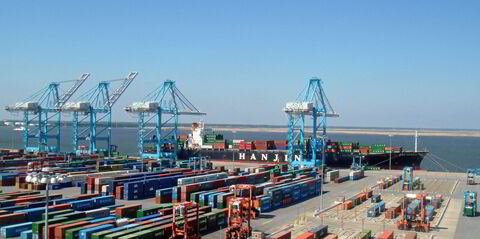Golar LNG is part of a consortium to provide a floating storage and regasification unit (FSRU) to the Ivory Coast, according to a press release from French oil major Total.
The Ivory Coast LNG consortium will operate an LNG regasification terminal with capacity of 3 million tons per year. Total said the Ivory Coast government agreed to the deal 4 October, with Total and its consortium partners.
Total holds a 34% stake in the deal, along with smaller stakes held Azerbaijan's state oil company Socar (26%) and Shell (13%). Total will use the terminal to supply LNG volumes from its global portfolio in proportion to its participating interest in the project.
Golar has a 6% stake in the project, while local partners have the remaining stake.
The project involves the construction of FSRU terminal berthed outside of the capital of Abidjan, and a pipeline connecting the FSRU to existing and planned power plants in Abidjan, as well as to regional markets connected to the Ivorian network.
Total said the project "will enable Ivory Coast to become the first regional LNG import Hub in West Africa, and to meet both regional and domestic demand."
But what FSRU will be used?
Wells Fargo analyst Michael Weber said Golar has several potential FSRU candidates by the mid-2018 start-up of Ivory Coast LNG.
It could elect to convert an existing LNG carrier, such as the 160,000-cbm Golar Penguin (built 2014) or 160,000-cbm Golar Celsius (built 2013) at a cost between $70m and $90m.
Golar could also potentially switch the Golar Tundra FSRU from servicing the West Africa Gas Limited project off of Ghana. The project still faces delays due to onshore facilities not being ready.
Golar could also elect to have a newbuilding FSRU for the project.


